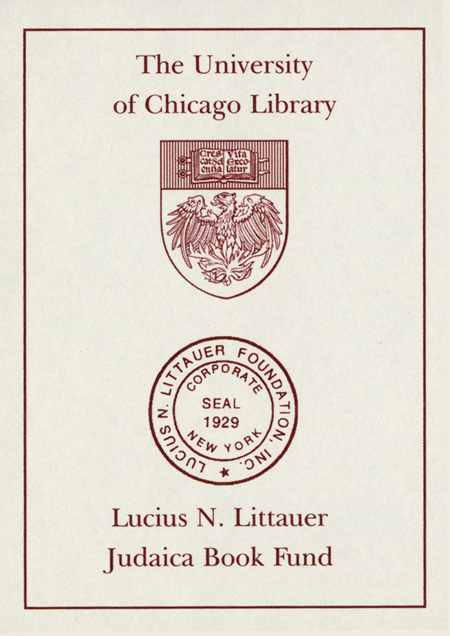| Summary: | Brenner's place in the Hebrew story tradition is a place of shadows. A place of others, grief and hard truth. Both in the short and charged plot of his life and in his literary work, he is Melancholy, the Black Martha of Hebrew literature. Brenner's stories express the taga of things. Their roots come from the depth of the Hebrew word, from the heart of the enterprise and the Zionist dream, as well as from the history of the modes of melancholic expression: the message of the degree of sorrow in existence. In melancholic poetics lies the complexity, explosiveness, complexity and sublimity of the Bernari text. In The Poetry of the Nerves, Yonatan Dayan speaks of melancholy as a human and literary quality, as an existential condition and as a way of expression. These guide his reading in Brenner's melancholic expression as a harbinger of sorrow, as a knower of flaw and error, and this in a past tense that is being renewed as a world language, and from its renewal it announces its loss. But what is the nature of the message and what is unique about this Brenner - whose literature is written as an expression of loss, the lamented Brenner - the author demands in many midrashims from world and Hebrew literature; From the myth of the melancholic Saturn, from the teachings of Hippocrates, from Aristotle's mistakes, from the poets of the Psalms, from Robert Burton's letters, from Walter Benjamin's theory of the Toga play, from Freud's pathologies and many others. All of these merge when reading Brenner's works: "In Winter", "Around the Point", "Nerves", "From Here and Here" and "Bereavement and Failure"; They lead to the laggards, the spirits of the past restrained by the power of the text, which work in it and even activate it, as words of poetry, poetry of nerves - the lament of the new Hebrew literature.' -- from the back cover. -- online translation
'מקומו של ברנר במסורת הסיפור העברי הוא מקום של צללים. מקום של אחרות, תוגה ואמת קשה. הן בעלילת חייו הקצרה והטעונה והן ביצירתו הספרותית, הרי הוא המלנכוליה, מרתה השחורה של הספרות העברית. סיפוריו של ברנר מבטאים את תוגת הדברים. שורשיהם יוצאים מעומק המילה העברית, מליבם של המפעל והחלום הציוני, כמו גם מהיסטוריית אופני המבע המלנכולי: הודעת מידת הצער שבקיום. בפואטיקה מלנכולית זאת טמונות התסבוכת, הנפיצות, המורכבות והנשגבות של הטקסט הברנרי. בשירת העצבים קורא יהונתן דיין במלנכוליה כאיכות אנושית וספרותית, כמצב קיומי וכדרך ביטוי. אלה מנחים את קריאתו במבעו המלנכולי של ברנר כמבשר תוגה, כיודע פגם וכיליון, וזאת בלשון עבר המתחדשת כשפת עולם, שמתוך התחדשותה היא מודיעה את אבדתה. אבל מה טיבה של ההודעה במה מתייחד מזגה לשם ייחוד ברנר זה - שספרותו נכתבת כמבע אובדן, ברנר המקונן - המחבר דורש במדרשים רבים מהספרות העולמית והעברית; מהמיתוס של שבתאי המלנכולי, מתורתו של היפוקרטס, מהשגותיו של אריסטו, מפיוטי תהילים, מכתבי רוברט ברטון, מתיאוריית מחזה התוגה של וולטר בנימין, מהפתולוגיות של פרויד ועוד רבים אחרים. כל אלה מתמזגים בקריאה ביצירותיו של ברנר: "בחורף", "מסביב לנקודה", "עצבים", "מכאן ומכאן" ו"שכול וכישלון"; הם מובילים אל הפיגורות, רוחות העבר האצורות בכוח הטקסט, הפועלות בו ואף מפעילות אותו, כאמרי שירה, שירת עצבים - קינתה של הספרות העברית החדשה'. -- מהמעטפת האחורית.
|
|---|

